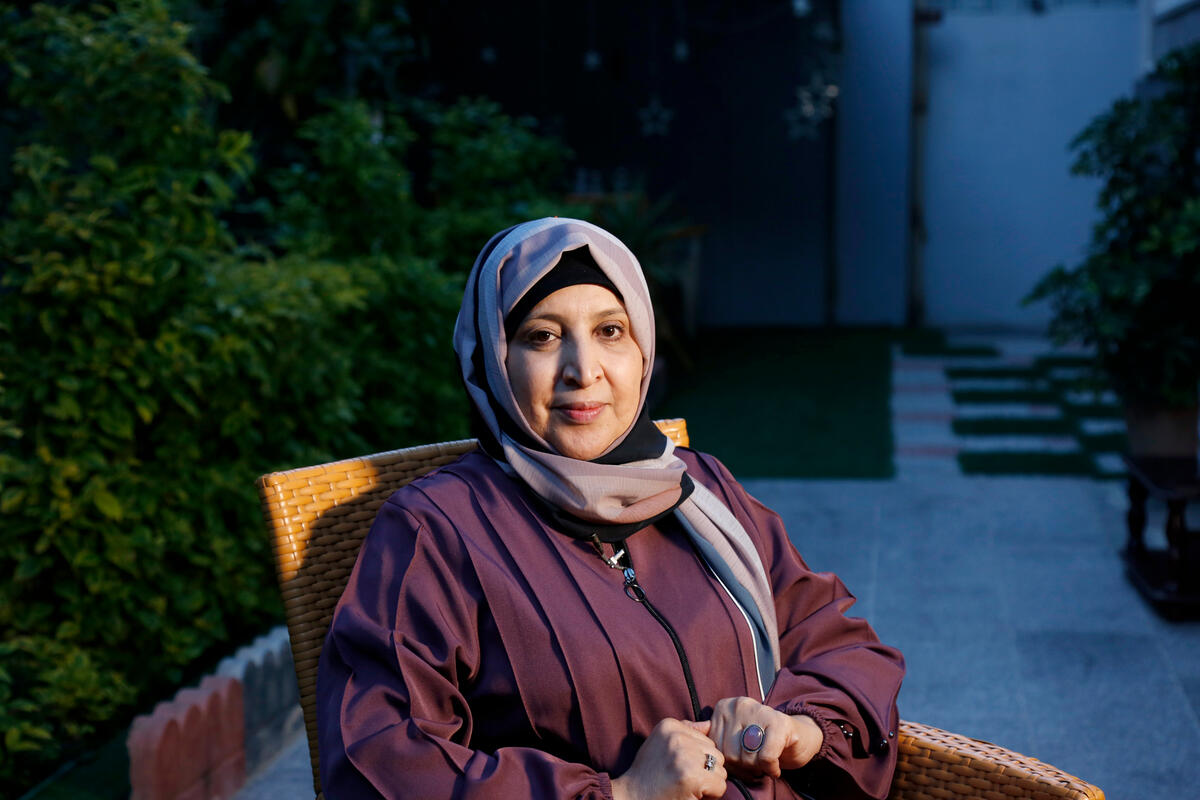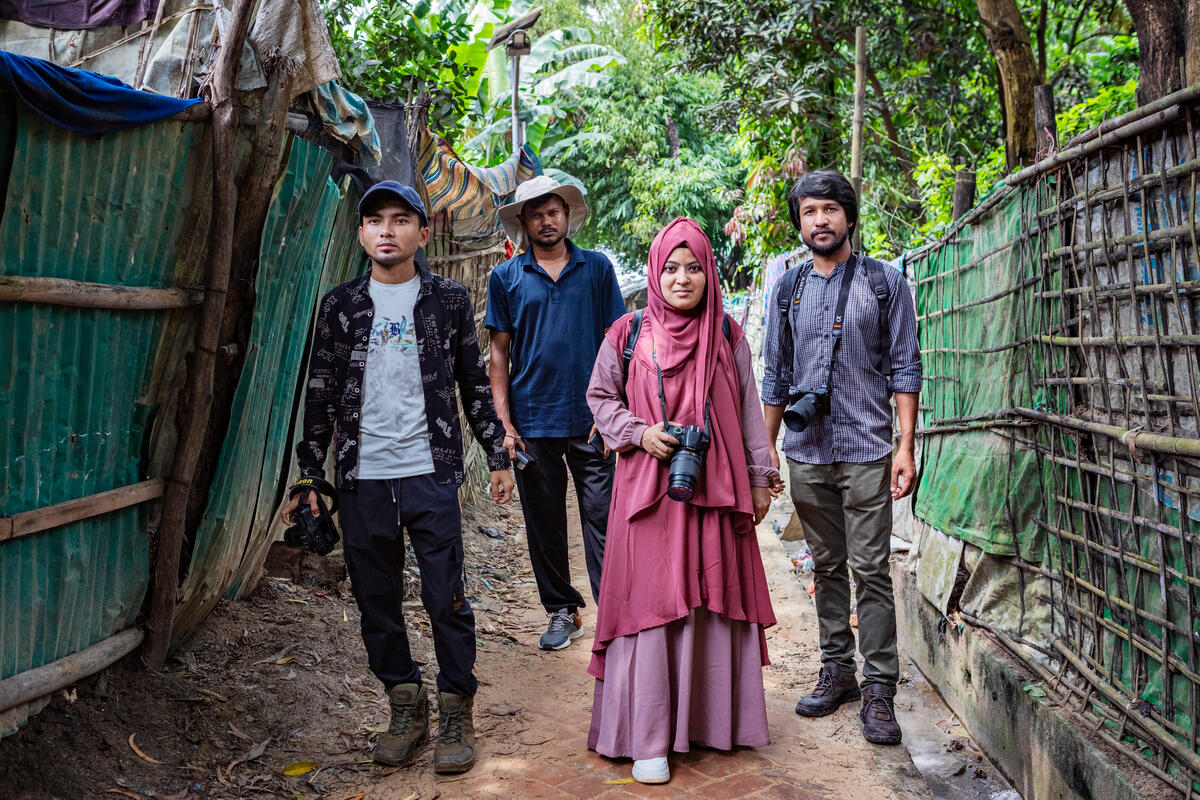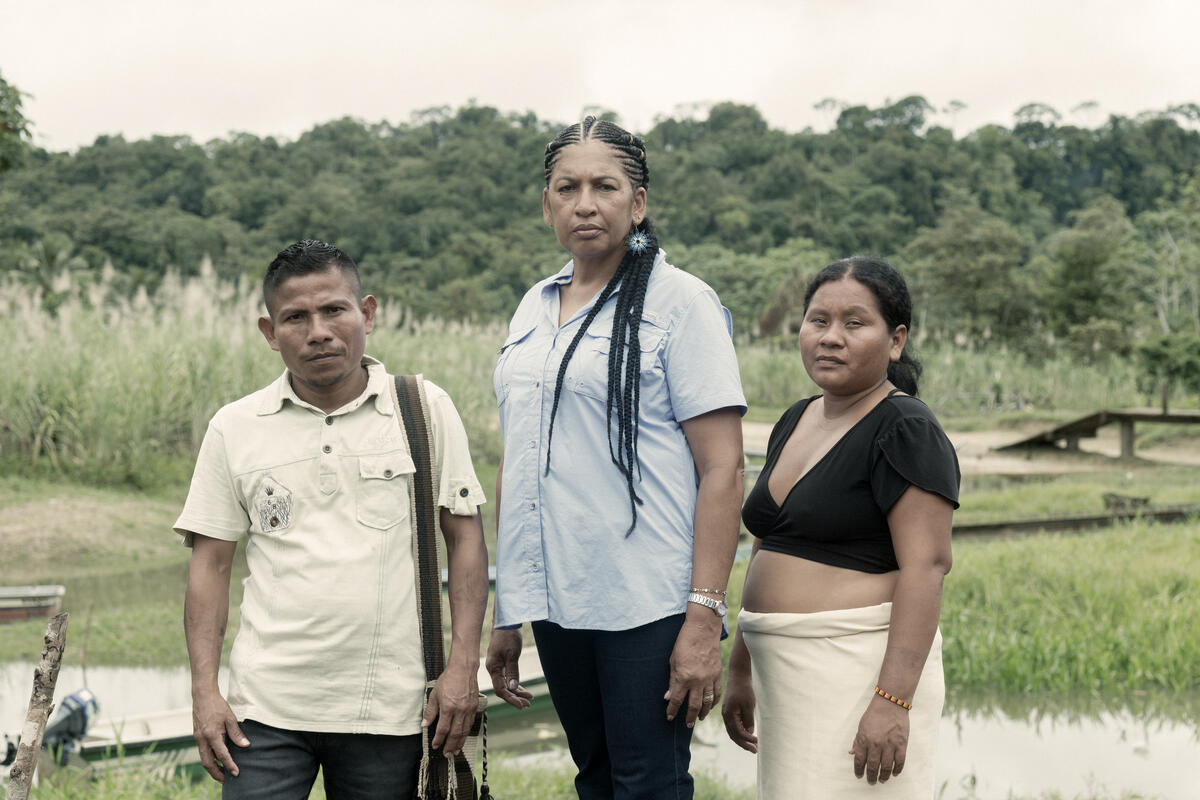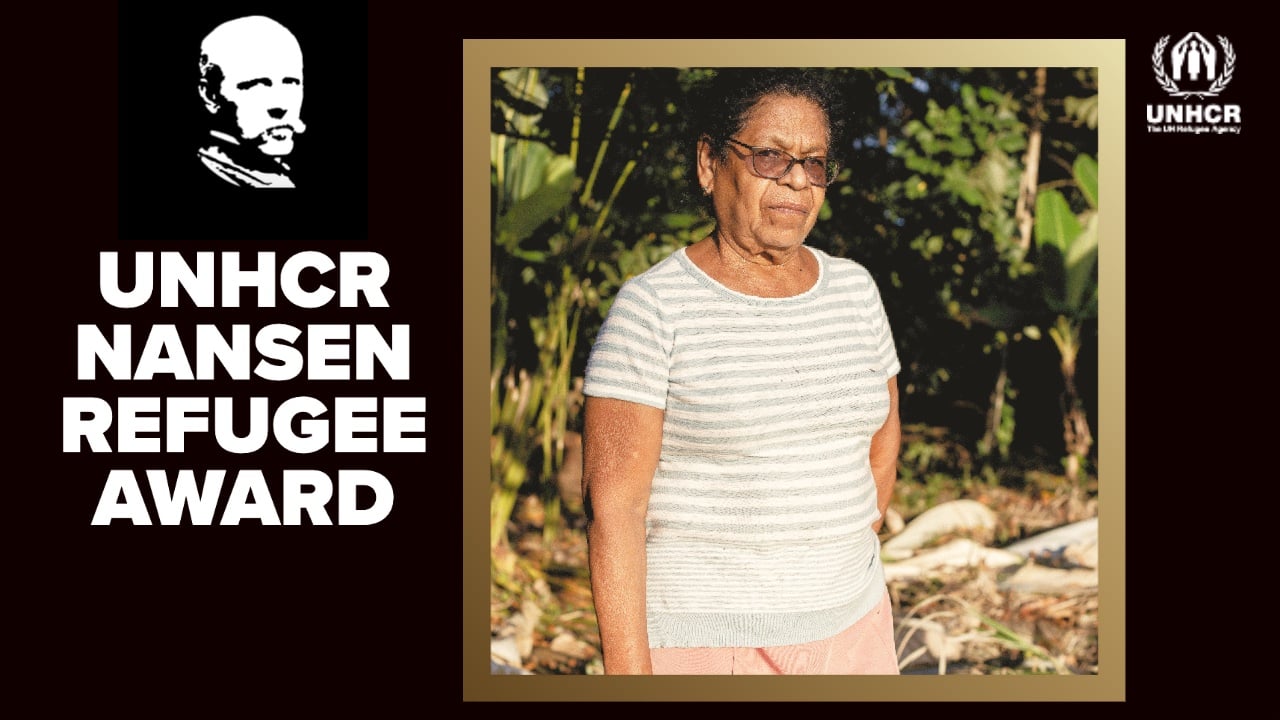British "heroine" receives Nansen Refugee Award in Geneva
British "heroine" receives Nansen Refugee Award in Geneva

GENEVA, October 5 (UNHCR) - UN High Commissioner for Refugees António Guterres presented British photojournalist Alixandra Fazzina with the prestigious Nansen Refugee Award late Monday in Geneva, calling her a "heroine" and a true partner in the cause of refugee protection.
In a glittering ceremony emceed by Sudanese-born BBC presenter, Zeinab Badawi, Guterres said "it is a moment of great pride [for UNHCR] that this award is given to such a remarkable advocate, to such a heroine," adding that the photographer had risked her life to capture images of the forcibly displaced around the world.
Fazzina, who was also congratulated in a special audio message from UNHCR Goodwill Ambassador Angelina Jolie, was clearly moved to receive the award in front of distinguished guests at Geneva's 19th Century Bâtiment des Forces Motrices, a former industrial building on the River Rhone.
She said she felt "incredibly honoured" to receive the Nansen Award, which was inaugurated in 1954 and is given annually to individuals or organizations in recognition of extraordinary and dedicated service to refugees. "I see myself really as a storyteller, my aim is always to put a human face on the plight of refugees and IDPs [internally displaced people] around the world in order to raise awareness and increase understanding," she added.

As the High Commissioner noted, Fazzina has over the past decade travelled to "the most dangerous places in the world . . . the most remote places in the world" to photograph the harsh lives of the forcibly displaced and bring this to the attention of the world.
She has covered the conflict-displaced in Africa, the Middle East, Asia and eastern Europe, documenting the lives of the uprooted through powerful and moving photo essays. The Nansen Award Committee praised in particular her coverage of landmine victims in Kosovo, civilians stranded behind enemy lines in Angola, rape as a weapon of war in Sierra Leone, the abuse of children by militias in the Democratic Republic of the Congo and Uganda, and refugee situations in Afghanistan and Pakistan.
Between 2006 and 2008, Fazzina chronicled the exodus of migrants and refugees from Somalia and Ethiopia as they sought to cross the Gulf of Aden to Yemen. She captured the despair and suffering of people seeking safety and a better life. The result was the recently published book, "A Million Shillings - Escape from Somalia."
More recently, she has taken striking photographs of people displaced by the devastating floods in Pakistan, where she is based. Her work has been published in major news media around the world, driving attention and sympathy to those she portrays.
Before the presentation, guests watched short videos on Fazzina and on Fridtjof Nansen, the great Norwegian polar explorer and first High Commissioner for Refugees after whom the award is named.

Canadian sisters Siham and Iman Hashi, who form the group Sweet Rush, and British musician Daniel Bedingfield performed at the event. Siham and Iman were resettled with their families in Canada after Somalia's civil war erupted in 1991. The pair have been creating a lot of excitement in the music world and are currently recording their first album.
Meanwhile, the exterior of the Bâtiment des Forces Motrices was illuminated with the UNHCR logo, Nansen Award messages and photos by Fazzina. The spectacular show was created by acclaimed Swiss light artist, Gerry Hofstetter, who has worked with UNHCR in the past.
Along with the Nansen Medal, Fazzina receives a US$100,000 prize - donated by the governments of Switzerland and Norway - that she can donate to a cause of her choice. Past individuals winners include Eleanor Roosevelt, Tanzania's late President Julius Nyerere, King Juan Carlos I of Spain, Graça Machelm, late Italian tenor Luciano Pavarotti and last year's posthumous winner, Senator Edward Kennedy.
A number of humanitarian organizations, and partners of UNHCR, have won the award, including the League of Red Cross Societies. Médecins sans Frontières, Handicap International and the UN Volunteers. In 1986, the Nansen went to the people of Canada.
Monday's event was generously supported by the Swiss and Norwegian governments, the Canton of Geneva, the City of Geneva, and close UNHCR partner, the Norwegian Refugee Council, which helped to organize this year's award and the presentation ceremony.
By Babar Baloch and Leo Dobbs in Geneva








